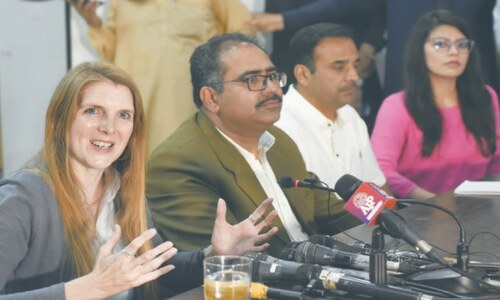Pakistan currently finds itself at crucial crossroads, grappling with the pervasive impact of inflation. This economic challenge carries far-reaching consequences, shaping not only the nation’s present but also its future trajectory.
The rising costs of essential goods and services have had a profound effect on the livelihoods of ordinary Pakistanis. Inflation tends to disproportionately affect low-income and marginalised populations, exacerbating income inequality and social disparities. As a result, the gap between the rich and poor widens, giving rise to social and political challenges.
High inflation rates create economic uncertainty, making it challenging for businesses to plan and invest. This uncertainty can deter both domestic and foreign investment, hindering economic growth.
The key to future economic growth is through prioritising investments in education and vocational training programmes to enhance employability of Pakistan’s workforce.
A comprehensive strategy should be implemented to control inflation under which prudent monetary policies need to be devised, targeted subsidies enforced on essential goods and measures taken to curb speculative practices that contribute to price hikes.
In the same way, social safety nets should be strengthened to protect vulnerable populations from adverse effects of inflation. Responsible fiscal policies need to be developed that strike a balance between managing deficits and investing in critical sectors such as infrastructure, healthcare and education. Promoting trade and foreign investment should be made a priority to diversify the economy and reduce reliance on domestic consumption. Foreign investors can help stabilise the economy and create job opportunities.
Another issue that needs to be addressed is inefficiency in the energy sector. A reliable and affordable energy supply is essential for economic stability and growth. Moreover, policies that foster inclusive economic growth need to be pursued to ensure that all segments of society benefit from development. This includes addressing income inequality and creating opportunities for marginalised communities, embracing digitalisation to enhance productivity and competitiveness and investing in digital infrastructure and promoting e-commerce to unlock new economic opportunities.
Inflation’s ripple effect on Pakistan’s destiny is a multifaceted challenge. However, it is also an opportunity for transformation and growth.
The path forward requires a combination of prudent policies, investment in human capital and technology, and a commitment to inclusive and sustainable development. By addressing inflation and its consequences while fostering innovation and social cohesion, Pakistan can shape a brighter economic destiny and create a more prosperous and stable future for its citizens. Building resilience in the face of inflation is a journey fraught with challenges, but it is one that Pakistan is fully capable of undertaking to secure a better destiny for all.
— The writer is M.Phil scholar in psychology and regular contributor towards SDGs.
Published in Dawn, September 10th, 2023














































Dear visitor, the comments section is undergoing an overhaul and will return soon.